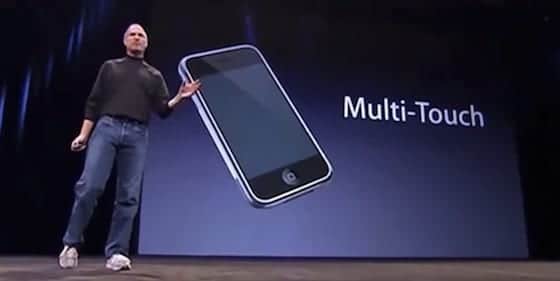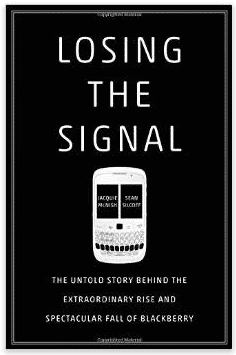In recent years, BlackBerry has grown from one of the leading smartphone manufacturers to a company struggling to stay afloat in an increasingly competitive market. BlackBerry it is experiencing a veritable hemorrhage of users and a constant loss of revenue quarter-over-quarter as it tries to change the course of its future by focusing on bringing security software and devices to market for its enterprise customers.
The bitter end of BlackBerry
An upcoming new book written by Jacquie McNish and Sean Silcoff, losing the signal, explores the events that led to BlackBerry to the top, then to fall, and an interesting excerpt that deals with how the iPhone contributed to the fall of BlackBerry, then known as RIM, has been published by The Wall Street Journal.
The launch of iPhoneUnique among all other smartphones on the market at that time, it took everyone by surprise. Not only was it very different from its competitors, but it also included features that manufacturers had previously denied such as a full web browser and later, an App Store that had no links to carriers. If I remember correctly, the closest thing we had seen in Spain before the arrival of iPhone As far as the internet on a mobile phone is concerned, it was that of "Movistar e-mocion", I suppose some of you will remember it, although it would be better not to remember it, a complete disaster that served little, if not at all.

Steve Jobs presents the iPhone
RIM executives claimed that the iPhone would be unattractive to users, why? Because it lacked a keyboard. Nor should we forget some mockery of Steve Ballmer, at the time CEO of Microsoft, that the best thing he did for the company was to leave it.
For executives of RIMS (BlackBerry), if he iPhone achieved some success, it would be among users more concerned with watching YouTube videos and other internet entertainment than with safety and efficiency. Today, eight years later, we see how ridiculous these statements are, however, in 2007, they were not the only ones who thought this way, showing a lack of vision for the future. This is what happens when you try to convince yourself that the best is your thing and you don't even bother to look at and critically assess what everyone else does.
RIM executives did not understand the iPhone and were "incredulous" that people were buying it, realizing too late that form had become as important as function in the eyes of consumers. In an effort to combat the iPhone threat, RIM partnered with Verizon to create a touch phone to compete with, TheStorm, which you can see in the header image of this article.

Home Losing the signal
Verizon pushed RIM to accelerate development of the phone, and the result could not have been worse: a product full of bugs and problems when it was launched in 2008. Still, the phone was marketed and RIM sold 1 million units in two months, and with a lot of dissatisfied customers who wanted to return or exchange it.
The Storm It was a spectacular failure for RIM, influencing its relationship with Verizon, ruining its reputation, and costing more than $ 100 million. After failure, BlackBerry was demoralized and at a crossroads, not knowing where to take the company in the future and how to compete with the iPhone and other smartphones in a landscape that was radically different from what the company knew.
RIM could not fully recover from failure of The Storm (whose translation, ironically, is "the storm") and find his balance, eventually leading to the path he is on today. "The failure of The Storm made it clear that we would no longer be the dominant smartphone company," said Jim Balsille, co-CEO of RIM. "We're dealing with who we are, because we can't be what we used to be anymore ... It's not clear what the hell to do."
Now, trying to be really critical, was he really the iPhone The one that killed BlackBerry, at least as it was known, as it also happened with another giant, Nokia, or it was the narrow-mindedness of executives convinced they had the best product and deliberately refused to acknowledge that a change was taking place. producing?
El abstract complete book, very interesting, in The Wall Street Journal. The play, losing the signal, It will go on sale on May 26.
SOURCE | MacRumors